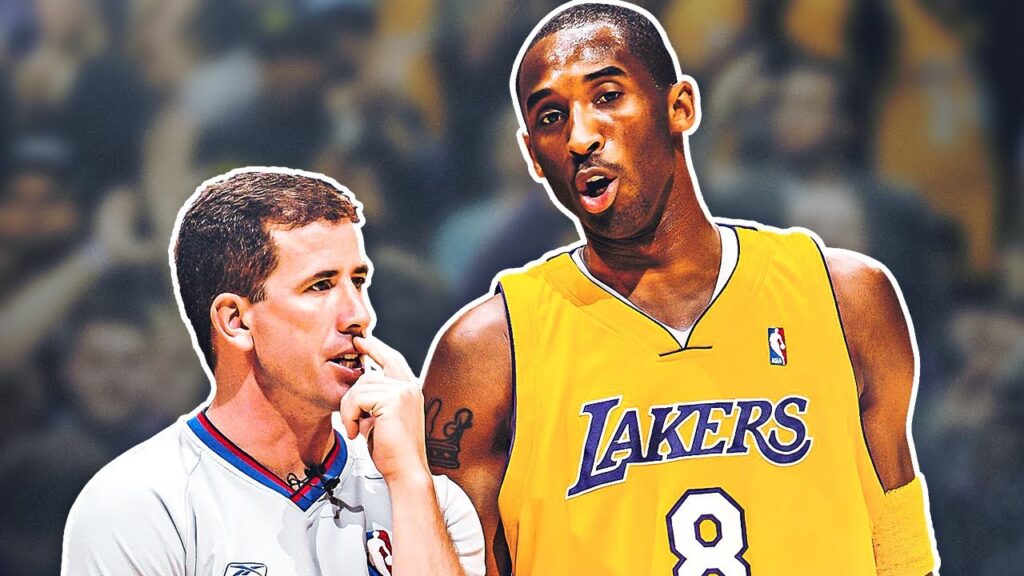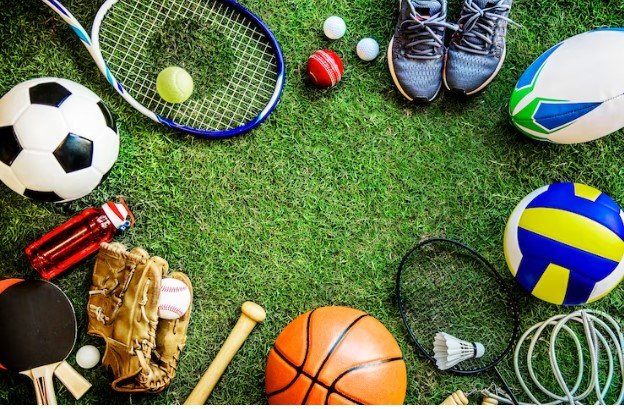Are Sports Rigged: Unveiling the Surprising Truth!

Sports are not rigged. Rigging would contradict fair play and integrity in sports competitions.
However, doubts occasionally arise due to controversial decisions or match-fixing scandals. Fans deeply value the purity of sports and cherish the competitive spirit that unites people worldwide. While allegations of rigging may exist, the majority of athletes and teams strive for excellence through hard work, talent, and dedication.
Sports remain a thrilling and unpredictable realm where true passion and skill ultimately triumph. Nonetheless, vigilance against corruption and cheating is crucial to upholding the integrity of sports and maintaining the trust of fans globally.
EVIDENCE OF RIGGED SPORTS
The question of whether sports are rigged has been a topic of debate for years. While many dismiss the idea as a conspiracy theory, there are numerous evidences that suggest otherwise. From match-fixing incidents to player testimonies, the sports industry has faced its fair share of controversies that raise doubts about the integrity of certain events and competitions.
MATCH-FIXING INCIDENTS
Match-fixing, where the outcome of a game or event is pre-determined for financial gain, has plagued various sports over the years. From soccer to cricket, match-fixing scandals have rocked the foundations of these sports. These incidents involve players, referees, or even entire teams conspiring to manipulate the result of a match. The impact of match-fixing on the credibility of sports cannot be understated, as it undermines the core values of fair competition and sportsmanship.
PLAYER TESTIMONIES
Player testimonies play a crucial role in shedding light on the issue of rigged sports. Athletes who have been involved in rigged events have come forward with compelling accounts of manipulation and coercion. Their firsthand experiences provide valuable insights into the inner workings of the sports industry and the pressures that can lead to compromising the integrity of the game. It is these testimonies that serve as a stark reminder of the potential for deceit within the world of sports.

ECONOMIC AND SOCIAL IMPACT
The economic and social impact of sports being rigged can be detrimental to the integrity of the sport, leading to a loss of trust from fans and sponsors. This can result in a significant decline in revenue and investment, affecting not only the industry but also the wider community that relies on sports for economic and social benefits.
Betting Industry Sports rigging directly impacts the betting industry. Loss of fan trust can lead to reduced betting activity and revenue. Fan engagement in sports is crucial for the betting industry as it drives betting activity and revenue. Fan Trust and Engagement Fan trust is essential for the sustainability of the sports industry and the betting sector. Low fan trust can lead to reduced engagement and negative economic implications. Fan engagement is a key driver of economic growth in the sports industry and the betting sector.
REGULATORY MEASURES
SPORTS GOVERNING BODIES REGULATIONS
Sports governing bodies like FIFA and IOC enforce strict rules to uphold the integrity of sports.
They monitor activities to ensure fairness and transparency in all competitions.
ANTI-CORRUPTION EFFORTS
Organizations implement anti-corruption measures to prevent any unethical practices in sports.
These efforts aim to maintain the credibility and trust of fans and participants.
ETHICAL CONSIDERATIONS
When discussing the question of whether sports are rigged, ethical considerations play a crucial role. Ethical guidelines and moral responsibilities form the foundation of sportsmanship and fair competition, influencing the integrity of athletes and officials. Let’s examine two key ethical considerations in the world of sports: fair play and integrity, and the moral responsibility held by athletes and officials.
FAIR PLAY AND INTEGRITY
Fair play and integrity are fundamental components in maintaining the authenticity of sports. Ethical conduct is vital in upholding the spirit of fair competition and ensuring that athletes and teams compete on a level playing field. It is essential for the sports community to uphold the principles of sportsmanship, where honesty and integrity are valued over the desire to win at any cost.
MORAL RESPONSIBILITY OF ATHLETES AND OFFICIALS
Athletes and officials bear a moral responsibility to uphold the ethical standards of the sport. They are entrusted with the duty to perform to the best of their abilities while maintaining a sense of fairness, respect, and responsibility to their fellow competitors and the sport. Their actions and decisions significantly impact the integrity and reputation of the sport, highlighting the importance of ethical conduct at all times.

PSYCHOLOGICAL AND SOCIOLOGICAL PERSPECTIVES
Examining the topic of rigged sports from both psychological and sociological perspectives reveals a fascinating and complex web of motivations and societal impacts. Understanding the motives behind rigging sports events and the subsequent effects on society can shed light on this controversial topic. In this section, we will explore the motivations behind rigging and the significant impact it can have on society.
MOTIVATIONS BEHIND RIGGING
Rigging sports events can be driven by various motivations, ranging from financial gain to personal ego. Let’s delve into some common factors that influence individuals and organizations to engage in such unethical practices:
- Financial Gain: One of the primary incentives for rigging sports events is the potential for significant monetary rewards. By manipulating outcomes, participants can exploit betting markets or secure lucrative sponsorships, leading to substantial financial benefits.
- Power and Prestige: The desire for power, fame, and prestige can push individuals to rig sports events. By controlling the outcome, they can assert dominance and attract attention, enhancing their social status and influence.
- Gambling Influence: The prevalence of sports gambling often creates opportunities for rigging. Individuals with ties to organized crime or deep involvement in gambling circles may be coerced or incentivized to manipulate sporting outcomes to benefit the betting syndicates.
- Supporter Influence: Rigging can extend beyond individual motivations to involve influential supporters or fan communities. In certain cases, dedicated fan bases may exert pressure or manipulate situations to favor their preferred teams or athletes, disrupting fair competition.
IMPACT ON SOCIETY
The rigging of sports events extends its consequences far beyond the immediate participants. It affects society as a whole, influencing fan sentiments, societal values, and the reputation of sports. Here are some critical ways in which rigged sports impact our society:
- Loss of Trust: When sports events are rigged, it erodes the trust that the public places in the fairness and authenticity of the competition. This loss of trust can undermine the integrity of the entire sporting industry and dampen enthusiasm among fans.
- Unfair Competition: Rigging creates an uneven playing field, skewing competition in favor of select individuals or organizations. This hinders fair competition and undermines the efforts and abilities of deserving athletes and teams.
- Economic Consequences: Rigged sports events can have significant economic consequences, ranging from reduced ticket sales and TV viewership to decreased sponsorships and less investment in the sporting industry. The financial stability and growth of sports can be compromised, impacting related businesses and employment opportunities.
- Societal Values: Rigging sports events sends a detrimental message about the value of fairness, integrity, and sportsmanship. It can contribute to a culture of cheating and dishonesty, discouraging young athletes and fans from participating in sports or undermining their belief in fair play.
Understanding both the motivations behind rigging and the broader societal impact is essential in combating such practices and preserving the integrity of sports. By addressing these psychological and sociological factors, we can work towards creating a fair and transparent sporting environment that celebrates skill, dedication, and honest competition.
LEGAL RAMIFICATIONS
CRIMINAL CONSEQUENCES
Engaging in sports rigging can have severe criminal consequences. Those involved may face criminal charges such as fraud, bribery, or conspiracy to defraud. These offenses are taken seriously by the legal system, and perpetrators can face hefty fines and even imprisonment.
CIVIL LIABILITY
In addition to criminal consequences, sports rigging can also lead to civil liability. Parties who suffer financial losses as a result of rigged sporting events can file civil lawsuits against those responsible, seeking compensation for their damages.
Parties liable for civil damages may include:
- Individuals who orchestrate the rigging
- Participating athletes who intentionally throw a game
- Team owners or managers who conspire with others to rig the outcome
Types of civil liability may include:
| Type of Liability | Description |
|---|---|
| Negligence | Failure to exercise proper care, resulting in harm to another party |
| Fraud | Intentional misrepresentation or concealment of facts, leading to financial losses |
| Breach of contract | Violation of an agreement or contract causing harm to the other party |
It’s important to note that civil liability can extend beyond those directly involved in the rigging scheme. This means third parties, such as sponsors or broadcasters, may also face legal consequences if they were aware of and participated in the rigging or failed to take action to prevent it.
FREQUENTLY ASKED QUESTIONS OF ARE SPORTS RIGGED
ARE SPORTS RIGGED FOR PROFITS?
Sports are not rigged for profit. Competitions are held under strict regulations and rules to ensure fairness.
ARE REFEREES BIASED IN SPORTS?
Referees in sports strive to be unbiased and make fair decisions based on the rules and their judgment.
DO BETTING SCANDALS AFFECT SPORTS INTEGRITY?
Betting scandals can tarnish the integrity of sports but they are isolated incidents and don’t represent the majority.
HOW DO SPORTS ENSURE FAIR COMPETITION?
Sports ensure fair competition through rigorous rules, regulations, and anti-doping measures to maintain fairness among participants.
CONCLUSION
While accusations of sports being rigged are not uncommon, there is no conclusive evidence to support this claim. It is essential to approach such accusations with critical thinking and to consider the integrity of the sports and the hard work of the athletes involved.
Ultimately, sports continue to provide entertainment, unity, and inspiration to millions worldwide.






